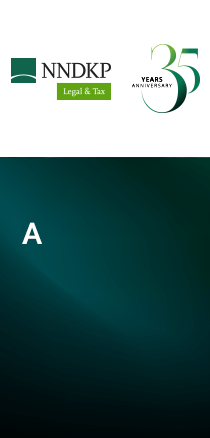
Corporate Governance Update Romania: what‘s new, what’s old and what’s “borrowed” under the revised BSE Corporate Governance Code?
14 Martie 2025 Diana Ispas (Partner) & Silviu Vasiliu (Senior Associate) - Bondoc & Asociații
Compliance with the rules set out in the Revised Code will continue to operate on the basis of the "comply or explain" principle (similarly to the previous Corporate Governance Code).

|
Context
As a famous English wedding tradition says, in order to enjoy a successful and happy marriage, the bride should have "something old, something new, something borrowed, something blue” on her wedding day.
Looking at the revised Corporate Governance Code of the Bucharest Stock Exchange (the “Revised Code”)[1], applicable as of 1st January 2025 to companies listed on the regulated market managed by the Bucharest Stock Exchange (“BSE”), and reinterpreting the wording of the above tradition, it seems that this recipe for success has been closely followed (even by the choice of the blue color of the BSE brand, some may anecdotally point out).
According to the new rules set out in the Revised Code, the first compliance reporting year applicable to the companies whose shares are admitted to trading on the regulated market will be 2026, corresponding for the financial year 2025. Even though the first reporting year will only be 2026, there are already strong signals from the market indicating that the key players in Romania's capital market are taking steps to adapt their rules and procedures to the new requirements provided under the Revised Code. This demonstrates that the changes have been generally positively received by the Romanian capital market players and also reflects the participants’ commitment to and interest in initiating their alignment with the new standards set forth by the Revised Code.
Why was a revision needed and what was the purpose of revising the Code?
As almost a decade has lapsed since the adoption of the previous BSE 2015 Corporate Governance Code, adopting a fresh, revamped corporate governance Code was triggered by several key factors, including regulatory updates (especially on sustainability matters), market evolution and alignment with evolving international best practices.
The revision of the Code aims not only to ensure that Romanian issuers are more attractive to international investors by aligning with key global best practices, but also to support the issuers’ corporate resilience in a rapidly changing world, while keeping this soft law tool as flexible and adaptable as possible to the needs and specificities of each issuer.
Something new - Main changes of the revised Code
The Revised Code brings a number of innovative changes essentially intended to enhance transparency, with the ultimate goal of facilitating companies' access to funding and strengthening investor confidence in the capital market. These changes reflect a forward-thinking approach seeking to adapt to evolving business environments and legal frameworks.
In a nutshell, some of the most notable and impactful amendments include:
n changes concerning the members of the board of directors, such as the recommendation to create a board profile, aspects related to board members’ remuneration, implementation of a diversity policy, implementation of new board evaluation and training rules;
n making a clear distinction from a practical point of view on the implementation of the Revised Code between companies managed under a unitary system and those managed under a dualist system – practically the Revised Code includes guidelines on how listed companies managed under the dualist system should interpret and implement the new requirements of the Revised Code;
n additional independence criteria for the members of the board of directors and the members of the audit committee compared to those included in Company Law 31/1990 and the recommendation that at least a third of the board members should be independent – the independence criteria are listed in Annex 1 to the Revised Code;
n the recommendation to have an independent vice-chairman in the board of directors when the positions of chairperson of the board of directors and general manager are held by the same person;
n the addition of a section dedicated to sustainability and stakeholder engagement, reflecting the growing concern and interest in relation to the application of sustainability requirements;
n new recommendations related to support functions (e.g., the appointment of a secretary general, development of an investors’ relation (IR) function and a risk management framework);
As a novelty, the BSE will monitor the listed companies' compliance and will publish an annual aggregated report on the implementation degree of the new rules.
Something old - Same “old” “comply or explain” principle will apply
Compliance with the rules set out in the Revised Code will continue to operate on the basis of the "comply or explain" principle (similarly to the previous Corporate Governance Code). This means that listed companies must either comply with established governance principles or provide clear explanations for any deviations. Additionally, where a listed company plans to comply with the provisions of the Revised Code on a later date, it should specify the implementation timeline and outline the measures it intends to take to achieve adherence to the new regulations.
Any non-compliance with the provisions of the Revised Code must be reported to the BSE immediately, but no later than 24 hours from the occurrence of the relevant event. Additionally, it is recommended that all reporting obligations regarding listed companies’ corporate governance be included in the corporate governance chapter of the annual report. This encourages transparency and accountability, without imposing rigid compliance requirements that could affect companies' corporate flexibility.
Something “borrowed” – the Code follows some key G20/OCDE Corporate Governance Principles
Through the Revised Code, an effort has been made to align the applicable corporate governance standards with best practices of other European Union member states, as well as with key corporate governance principles of the Organization for Economic Co-operation and Development (“OECD”), laid down under the G20/OCDE Corporate Governance Principles 2023[2].
The challenge that was posed was to adapt these recognized best practices to the characteristics of the local capital market and to the legal requirements of the Romanian capital market.
The Revised Code has now been largely aligned with OECD corporate governance principles, particularly in respect of shareholders’ rights, transparency, and ESG integration. Recommendations related to the equitable treatment of shareholders, board responsibilities, enhanced transparency and reporting criteria, as well as sustainability and resilience elements have been incorporated in the Revised Code.
All these corporate governance rules which are aligned with internationally recognized good practices are aimed at creating a more predictable and investor-friendly market environment, enabling the market participants to smoothly implement the newly adopted corporate governance standards.
In addition, this initiative supports Romania in the process of joining the OECD, where corporate governance plays a key role. Romania’s accession to the OECD (targeted for 2026) is expected to bring a wide range of benefits, significantly enhancing the country’s economic and institutional development, which will ultimately lead to an enhanced investor confidence on the Romanian capital market and facilitate capital markets financing.[3]
Conclusion
Despite the fact that the Revised Code largely remains a soft law tool (except for its reporting obligations), early indications suggest that market participants are receptive to the new requirements and many have already initiated the internal procedures to ensure compliance with the Revised Code; this suggests that following the old saying that “something new, something old and something borrowed” should be brought in the making of the revised Code will prove to be successful.
Awareness has already been raised that its proper implementation could ultimately lead to increasing liquidity, by attracting new capital markets financing and building investor trust.
The Revised Code is definitely one of the catalysts boosting the strengthening of the Romanian capital market and may be regarded as setting a new domestic “gold standard” to be followed not only by listed companies, but also by private ones, whether or not seeking to access capital markets financing.
| Publicitate pe BizLawyer? |
  |
| Articol 158 / 4606 | Următorul articol |
| Publicitate pe BizLawyer? |
 |

Apreciată constant de ghidurile juridice internaționale pentru mandatele sofisticate, practica de Capital Markets a CMS România a devenit, prin consistență și profunzime, unul dintre pilonii reputației firmei pe piața locală și un reper important în rețeaua sa regională | De vorbă cu Cristina Reichmann (Partener) despre disciplina pregătirii pentru bursă, finețea aplicării regulilor de piață și forța unei echipe care lucrează articulat, cu roluri clare și obiective aliniate
Filip & Company a organizat în parteneriat cu Asociația Studenților în Drept cea de-a zecea ediție a Concursului de negocieri simulate „Teodora Tudose”
MAXIM ̸ Asociații asistă EMSIL TECHTRANS în tranzacția imobiliară încheiată cu METSO pentru o proprietate industrială din Oradea
Kinstellar a consiliat GEA Group, firmă cu operațiuni în peste 150 de țări, cu privire la crearea unui joint venture cu RebelDot, companie de tehnologie din Cluj-Napoca. Echipa care a gestionat proiectul a fost condusă de Rusandra Sandu (Partner) și Mihai Stan (Managing Associate)
Mitel & Asociații dezvoltă o practică de litigii construită în jurul unui nucleu de avocați cu mare experiență, capabilă să ducă la capăt mandate complexe cu impact financiar și reputațional major, într-o piață în care disputele devin tot mai tehnice și mai dure | De vorbă cu Magda Dima (Partener) despre cum se construiește strategia, se evaluează riscurile și se formează generația nouă de litigatori
Echipa de Concurență a RTPR îmbină experiența cu precizia operațională, într-o formulă remarcată în Legal 500 și Chambers | De vorbă cu partenerii Valentin Berea și Roxana Ionescu despre modul de lucru care privilegiază consistența și rigoarea, cu rezultate ce confirmă profesionalismul și anvergura practicii
NNDKP, Popescu & Asociații și ZRVP au cei mai mulți profesioniști listați în Benchmark Litigation - 2025. Ce avocați au intrat în liga „Litigation Stars” și prin ce s-au remarcat firmele aflate în plutonul de forță al practicii
Mușat & Asociații confirmă, în Real Estate, forța unei echipe obișnuite să lucreze sub presiunea timpului și a reglementărilor, menținând proiectele pe un traseu sigur de la due diligence la implementare | De vorbă cu Monia Dobrescu (Partener) despre combinația de rigoare juridică, luciditate în evaluarea riscurilor și creativitate în soluții, într-o periodă plină de provocări
NNDKP confirmă, prin practica de Litigii, că este prima opțiune pentru companiile care au nevoie de reprezentare în dosare cu miză de sute de milioane de euro, în instanțe și arbitraje la curți internaționale | De vorbă cu Emil Bivolaru (Partener Executiv) și Sorina Olaru (Partner) despre combinația dintre strategie, tehnologie și echipe capabile să ducă la capăt dosare complexe cu soluții favorabile, construite pe argumente solide, într-o piață a disputelor sofisticată
Patru firme de avocați din România, evidențiate pentru activitatea în domeniul Competition ̸ Antitrust | NNDKP, CMS, TZA și D&B David și Baias au intrat în topul global al firmelor cu cea mai bună practică de concurență. Cine sunt avocații evidențiați de GCR 100 – 2026 și care au fost proiectele care au adus recunoaștere echipelor locale
ZRVP, desemnată din nou „Firma de Avocatură a Anului din România” la Lexology Index Awards 2025 | Dr. Cosmin Vasile (Managing Partner): Un premiu obținut doi ani la rând spune un lucru simplu: că echipa merge în direcția bună. O astfel de recunoaștere confirmă nivelul profesional atins și, în același timp, ne obligă să rămânem la fel de exigenți
Fiscalitate ̸ Litigii Fiscale - Practica de Taxe a Kinstellar funcționează ca un „hub” integrat între drept, fiscalitate și finanțe, ce conturează un parcurs procedural previzibil, din faza de control al documentelor până la soluțiile finale ale instanței. Clienții beneficiază de pregătire proactivă, probatoriu robust și o echipă calibrată pentru litigii sofisticate | De vorbă cu Theodor Artenie (Counsel) și Raluca Botea (Counsel) despre tendințele ultimului an, prevenție, timing și modul de lucru al unei echipe recunoscute de directoarele internaționale
-
BizBanker
-
BizLeader
- in curand...
-
SeeNews
in curand...











 RSS
RSS














































